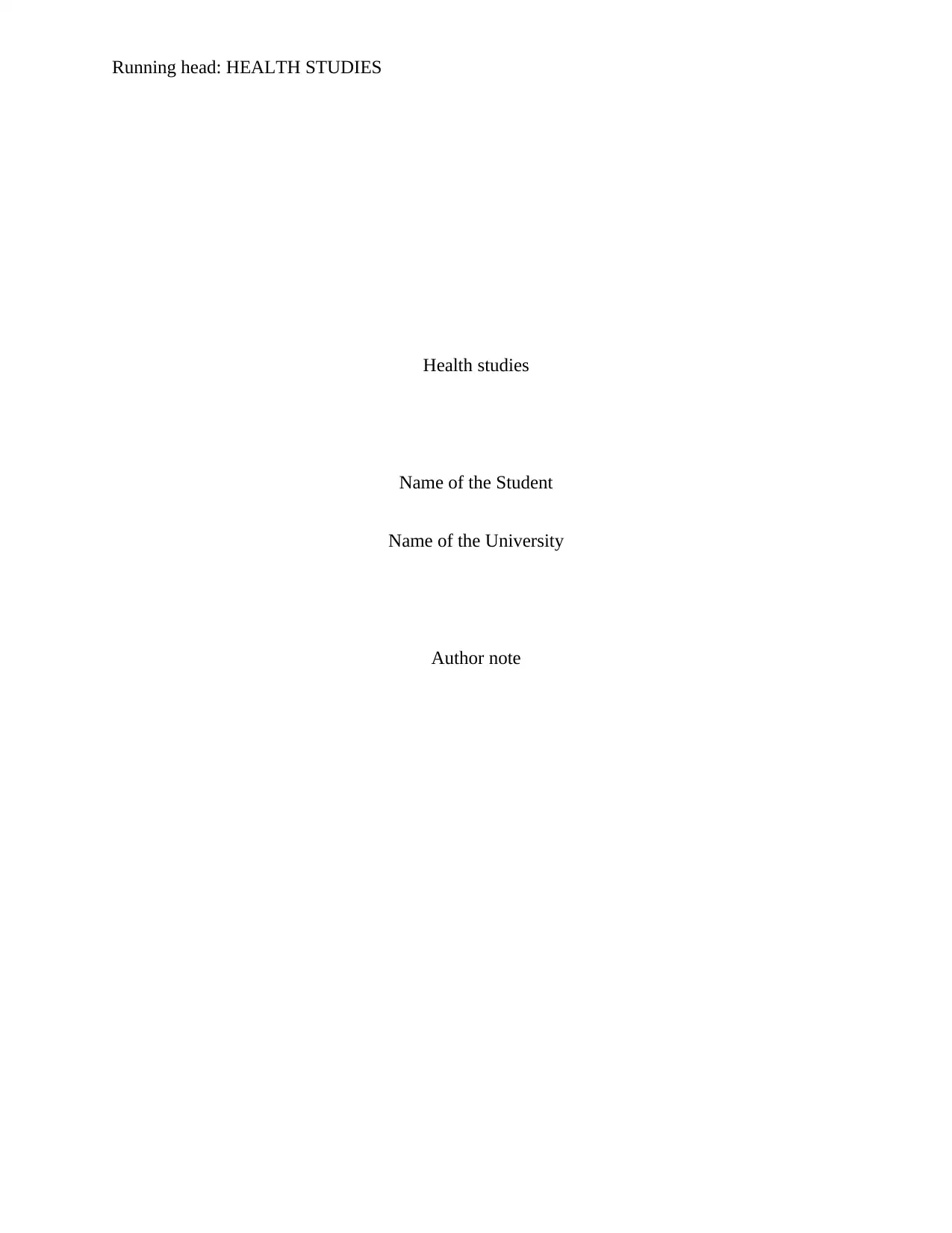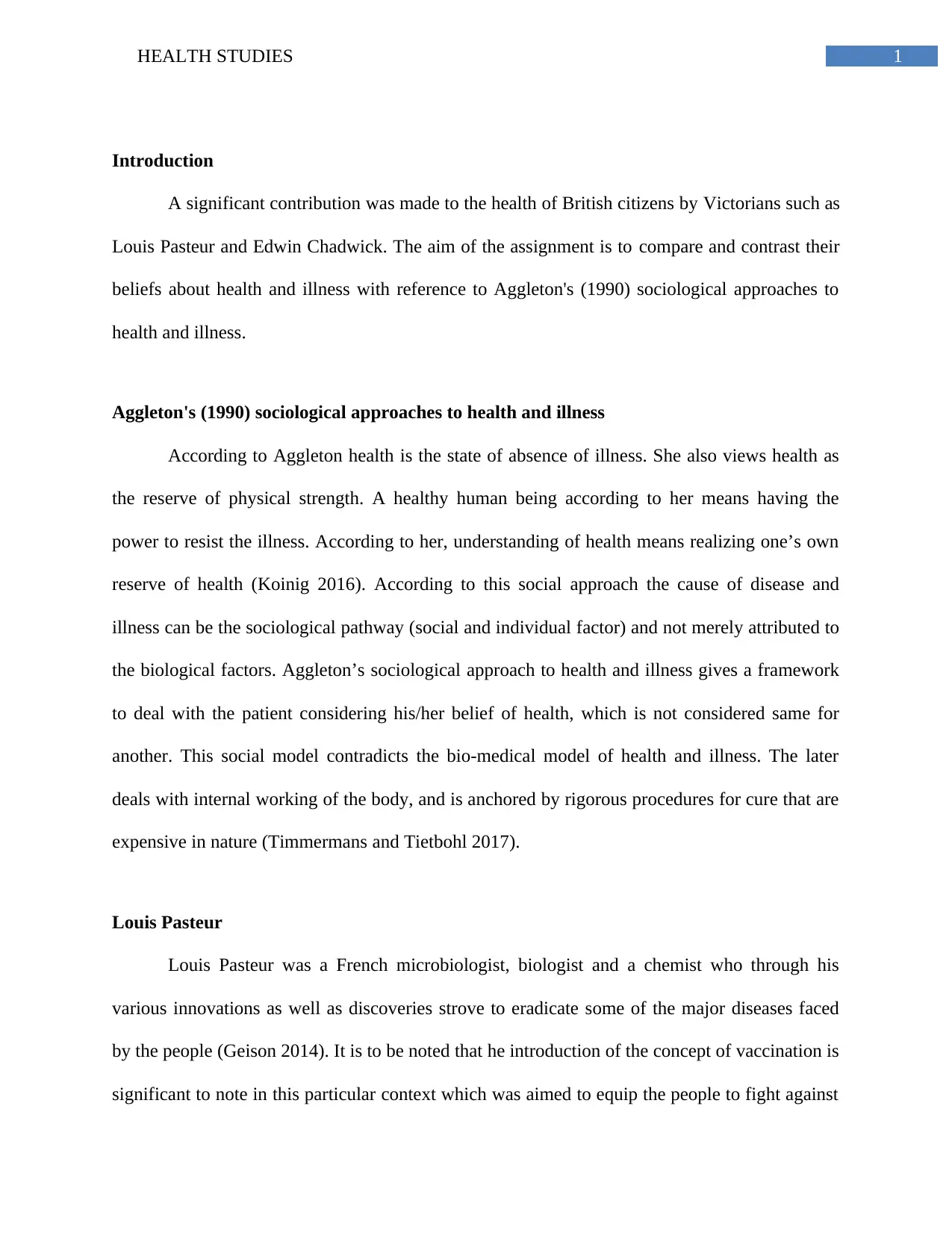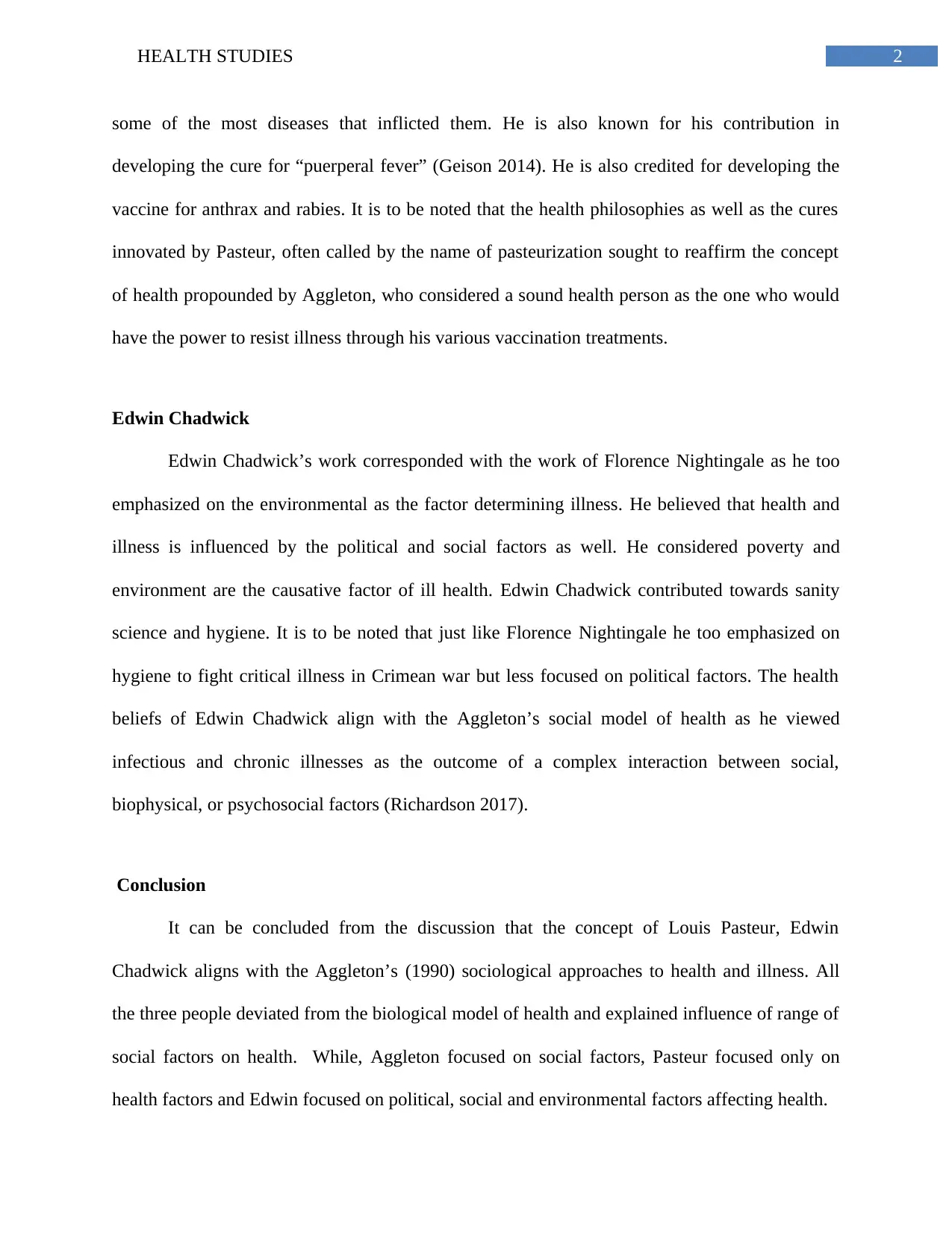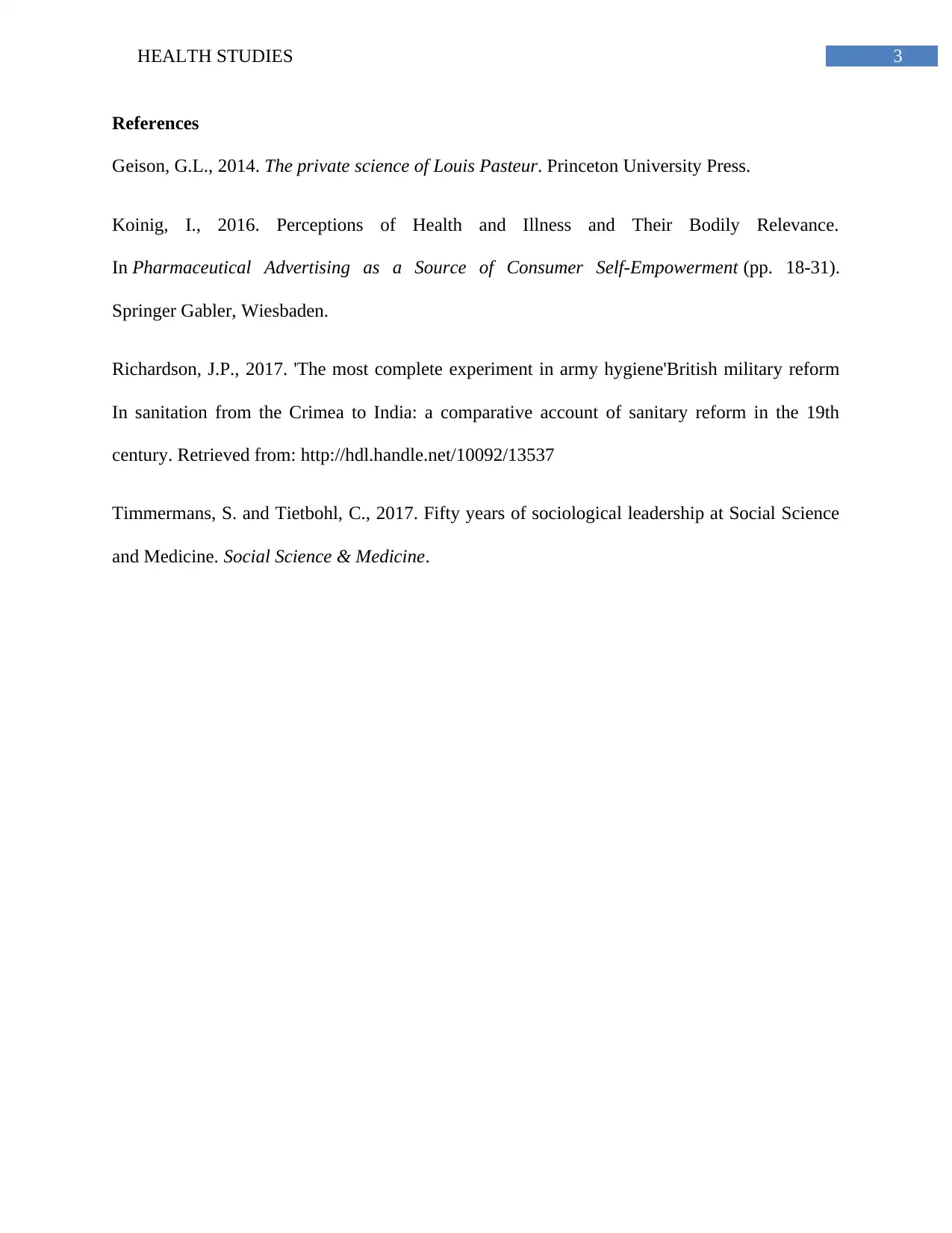Health Studies Essay: Pasteur, Chadwick, Aggleton and Public Health
VerifiedAdded on 2021/04/21
|4
|760
|20
Essay
AI Summary
This essay delves into the health beliefs of the Victorian era, focusing on the contributions of Louis Pasteur and Edwin Chadwick. It compares and contrasts their perspectives on health and illness, alongside Aggleton's sociological approaches. The essay explores Pasteur's innovations, such as vaccination and pasteurization, and how they align with Aggleton's view of health as the power to resist illness. It also examines Chadwick's emphasis on environmental and social factors influencing health. The conclusion highlights the convergence of these figures in deviating from a purely biological model, emphasizing the impact of various social factors on health. The essay provides a comprehensive overview of Victorian public health insights and their sociological underpinnings.
1 out of 4






![[object Object]](/_next/static/media/star-bottom.7253800d.svg)